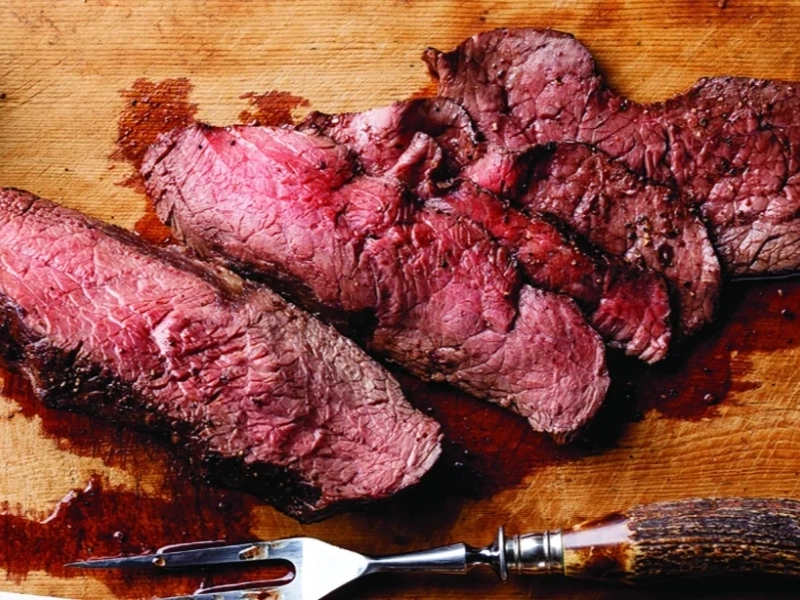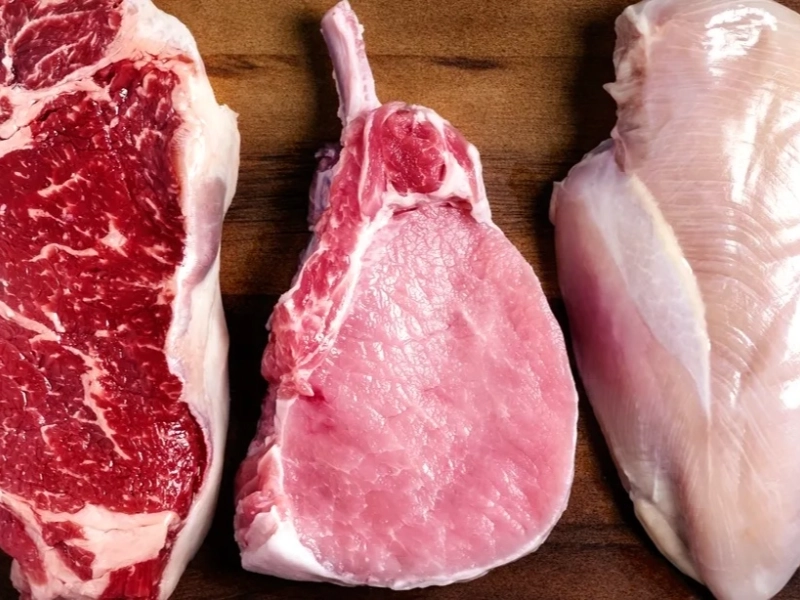Beef and Exercise Recovery: Optimal Protein for Athletes
1. Protein's Value for Healing Particularly for athletes who do rigors training, protein is absolutely vital for workout recovery. Following a workout, the body repairs itself using muscle fibres strained during exercise that must be regenerated. By supplying the required amino acids—the building blocks of muscle tissue—consuming enough protein helps support this repair. Improving performance, lowering muscle pain, and avoiding damage depend on this.
2. Why Should One Source their Protein from Beef? Comprising all nine of the key amino acids needed for muscle development and repair, beef is a great source of premium protein. Branched-chain amino acids (BCAAs) such as leucine, which greatly influence muscle protein synthesis, abound in particular. Furthermore necessary for energy generation and general health are minerals found in beef include iron, zinc, and vitamin B12. Including beef in an athlete's diet can improve recuperation and assist in supporting performance objectives.

 5. Combining Other Nutrients with Beef Although protein is vital, for a well-rounded recovery dinner beef should be combined with other nutrients. Including carbohydrates helps restore depleted glycogen levels from exercise. Lean beef combined with complete grains, fruits, or vegetables makes a balanced meal that boosts general energy levels in addition to helping muscles recover. An outstanding post-workout dinner is a beef stir-fry with brown rice and mixed vegetables.
6. The Function of Water One of the most important elements of recuperation is hydration, hence one should not ignore it. Through sweat, the body loses electrolytes and fluids following vigourous exercise, which can compromise performance and recuperation. Along with a protein source like beef, drinking enough water and electrolyte-rich beverages will help replenish hydration levels. Good hydration helps muscles to operate and nutrients to be transported, so improving healing efforts.
5. Combining Other Nutrients with Beef Although protein is vital, for a well-rounded recovery dinner beef should be combined with other nutrients. Including carbohydrates helps restore depleted glycogen levels from exercise. Lean beef combined with complete grains, fruits, or vegetables makes a balanced meal that boosts general energy levels in addition to helping muscles recover. An outstanding post-workout dinner is a beef stir-fry with brown rice and mixed vegetables.
6. The Function of Water One of the most important elements of recuperation is hydration, hence one should not ignore it. Through sweat, the body loses electrolytes and fluids following vigourous exercise, which can compromise performance and recuperation. Along with a protein source like beef, drinking enough water and electrolyte-rich beverages will help replenish hydration levels. Good hydration helps muscles to operate and nutrients to be transported, so improving healing efforts.
 7. Lean Beefcuts for Athletes Athletes using beef for recovery should choose for lean cuts to reduce saturated fat intake and maximise protein benefits. Excellent selections are cuts including flank steak, tenderloin, and sirloin. If ground beef is lean—that is, 90% lean or more—it may also be a suitable choice. Healthy cooking techniques such grilling, baking, or stir-frying beef aid to retain its nutritious worth while maintaining meals tasty and gratifying.
8. The advantages of beef over just protein Apart from being a fantastic source of proteins, beef has various health advantages that can help sportsmen perform. Because beef's iron is quite bioavailable—that is, readily absorbed by the body—you find it in For athletes especially, iron is vital for the movement of oxygen in the blood. Enough iron can improve endurance and lower fatigue, therefore enabling athletes to workout harder and recover faster.
7. Lean Beefcuts for Athletes Athletes using beef for recovery should choose for lean cuts to reduce saturated fat intake and maximise protein benefits. Excellent selections are cuts including flank steak, tenderloin, and sirloin. If ground beef is lean—that is, 90% lean or more—it may also be a suitable choice. Healthy cooking techniques such grilling, baking, or stir-frying beef aid to retain its nutritious worth while maintaining meals tasty and gratifying.
8. The advantages of beef over just protein Apart from being a fantastic source of proteins, beef has various health advantages that can help sportsmen perform. Because beef's iron is quite bioavailable—that is, readily absorbed by the body—you find it in For athletes especially, iron is vital for the movement of oxygen in the blood. Enough iron can improve endurance and lower fatigue, therefore enabling athletes to workout harder and recover faster.
 9. Possible Thoughtfulness Although beef can be a great supplement to an athlete's diet, moderation is important. Eating too much red meat could be connected to some health concerns like heart disease. Poultry, fish, dairy, legumes, and plant-based proteins are just a few of the several protein sources athletes should strive for in a balanced meal. See a dietitian or nutritionist to assist athletes design a customised diet fit for their particular demands.
10. Review of Beef's Function in Recovery from Exercise Because of its great quality protein and vital elements, beef can greatly improve exercise recovery for athletes. Athletes can maximise their recovery by timing protein intake correctly, selecting lean cuts, and pairing beef with other nutrients. Besides protein, beef supports general health and performance by means of other nutrients. Through wise food decisions, athletes may maximise beef's ability to support their recuperation and reach their fitness objectives.
9. Possible Thoughtfulness Although beef can be a great supplement to an athlete's diet, moderation is important. Eating too much red meat could be connected to some health concerns like heart disease. Poultry, fish, dairy, legumes, and plant-based proteins are just a few of the several protein sources athletes should strive for in a balanced meal. See a dietitian or nutritionist to assist athletes design a customised diet fit for their particular demands.
10. Review of Beef's Function in Recovery from Exercise Because of its great quality protein and vital elements, beef can greatly improve exercise recovery for athletes. Athletes can maximise their recovery by timing protein intake correctly, selecting lean cuts, and pairing beef with other nutrients. Besides protein, beef supports general health and performance by means of other nutrients. Through wise food decisions, athletes may maximise beef's ability to support their recuperation and reach their fitness objectives.







